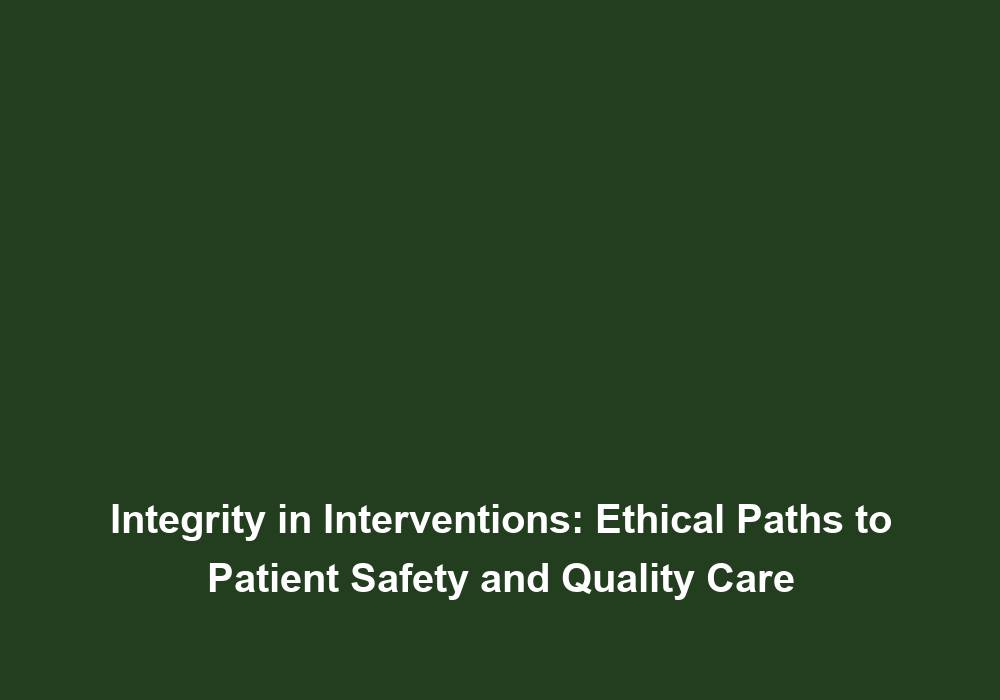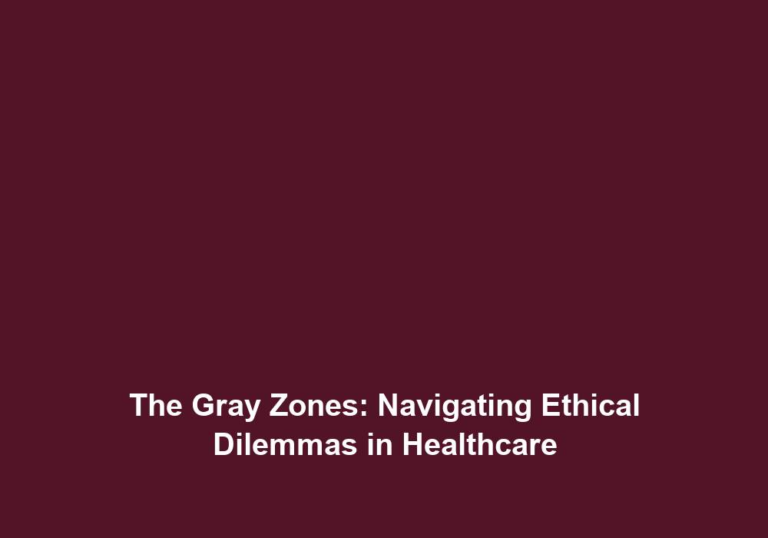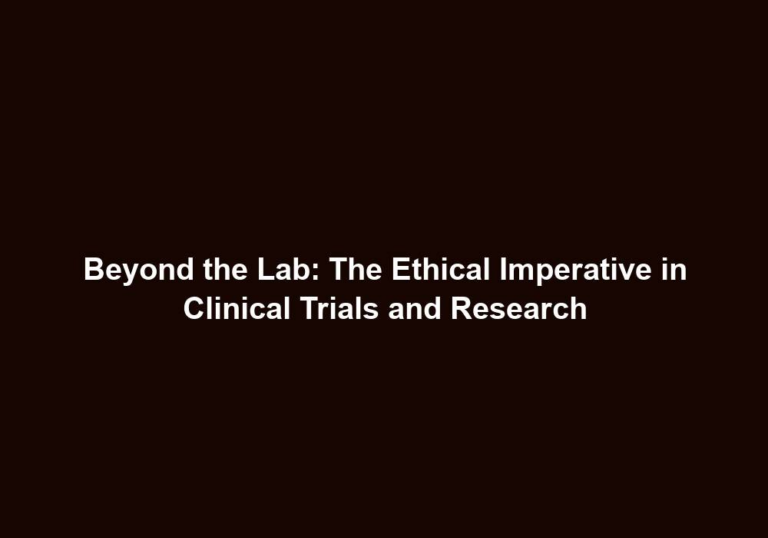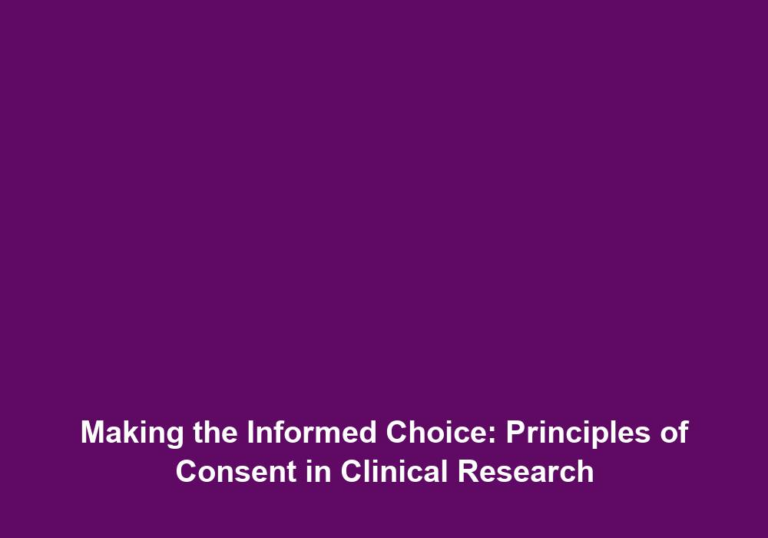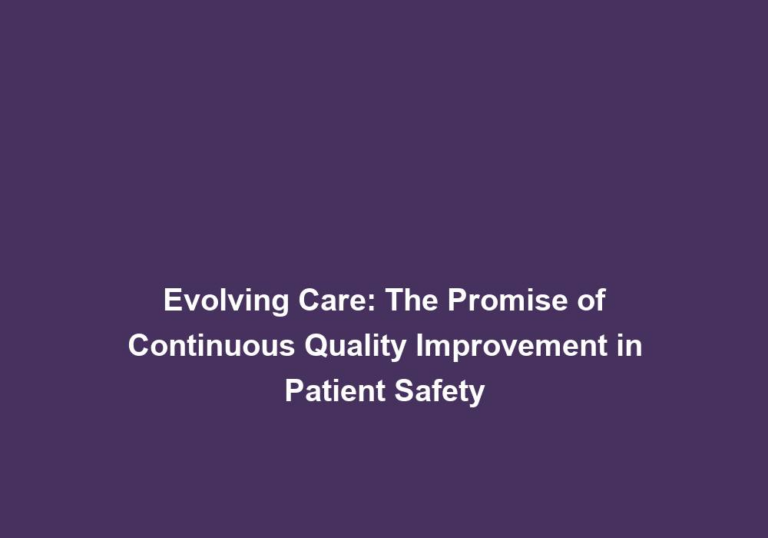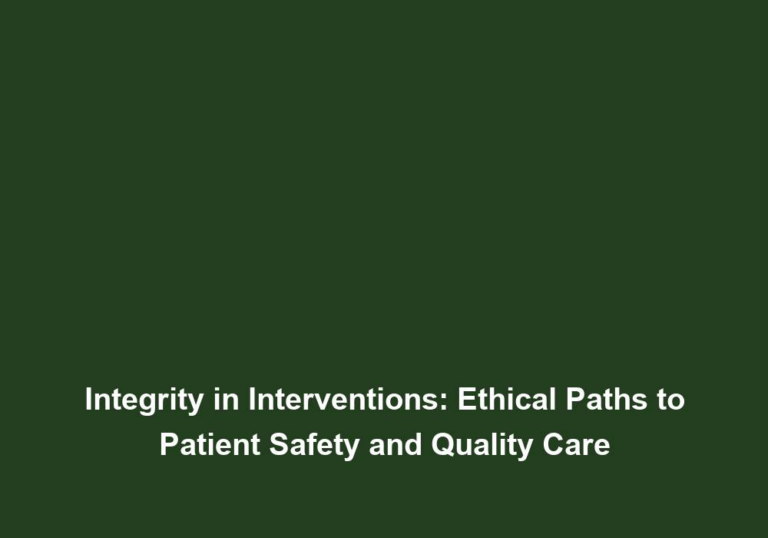Guardians of Care: Balancing Ethics with Patient Safety and Quality
In today’s healthcare landscape, the role of healthcare professionals has surpassed the traditional boundaries of providing medical treatment alone. As guardians of care, healthcare providers are not only responsible for ensuring the safety and quality of patient care but also for striking a delicate balance between ethics and these essential aspects. This article explores the crucial role of healthcare professionals in balancing ethics with patient safety and quality, highlighting the challenges they face and the strategies they employ to uphold these ideals.
The Intersection of Ethics, Patient Safety, and Quality
Ethics, patient safety, and quality are interconnected elements that form the foundation of ethical healthcare practices. Ethics encompasses the moral principles and values that guide healthcare professionals in their decision-making process. It involves considering what is right and wrong, and making choices that align with these principles. Patient safety focuses on preventing harm to patients, ensuring their well-being throughout their healthcare journey. Quality, on the other hand, revolves around delivering optimal and effective care, aiming for positive patient outcomes.
Healthcare providers must navigate these interconnections to ensure that their actions align with ethical standards while safeguarding patient safety and ensuring high-quality care. This multidimensional aspect necessitates a thorough understanding of the ethical principles that govern healthcare, along with a commitment to upholding patient safety and quality.
Ethical Challenges in Healthcare
Healthcare professionals encounter various ethical challenges in their daily practice. These challenges can arise from conflicting interests, resource constraints, cultural differences, and legal frameworks. It is important for healthcare providers to be aware of these challenges and develop strategies to address them effectively.
Conflicting Interests
In healthcare, conflicting interests can arise between patients, healthcare providers, and other stakeholders. Balancing the best interests of the patient with financial considerations, professional obligations, and personal beliefs can be ethically complex. Healthcare professionals must strive to prioritize patient well-being while managing these competing interests. This requires open and transparent communication, involving patients in decisions about their care, and considering their values and preferences.
Resource Constraints
Resource limitations can pose ethical dilemmas for healthcare providers. When faced with scarcity, they must make challenging decisions about resource allocation, often considering factors such as patient prognosis, chances of success, and equity. Balancing fairness and maximizing patient benefit can be ethically demanding in resource-constrained environments. Healthcare professionals must engage in careful deliberation, incorporating evidence-based practices and ethical guidelines to guide their decision-making process.
Cultural Differences
In an increasingly diverse society, healthcare professionals encounter patients from various cultural backgrounds with unique beliefs and values. Respecting cultural diversity while upholding ethical principles can be challenging. Providers must strive to provide culturally sensitive care, ensuring that patient autonomy and preferences are respected while promoting the best possible outcomes. This requires healthcare professionals to engage in active listening, cultural competence training, and collaboration with interpreter services when necessary.
Legal Frameworks
Legal frameworks play a crucial role in shaping healthcare practices, often defining the boundaries within which providers must operate. Healthcare professionals must navigate complex legal landscapes, ensuring compliance with regulations while maintaining ethical standards. This includes protecting patient confidentiality, obtaining informed consent, and reporting adverse events. To address legal and ethical challenges, healthcare providers need to stay updated on relevant laws and regulations, seek legal advice when needed, and maintain a strong commitment to ethical conduct.
Strategies for Balancing Ethics, Patient Safety, and Quality
Despite the inherent challenges, healthcare professionals employ various strategies to effectively balance ethics, patient safety, and quality. These strategies aim to promote patient-centered care, foster ethical decision-making, and enhance overall healthcare delivery.
Emphasizing Communication and Collaboration
Open and effective communication is essential in ensuring ethical healthcare practices. Healthcare teams must foster a collaborative environment where all members can openly discuss ethical concerns and dilemmas. This allows for the exchange of diverse perspectives and facilitates informed decision-making, ultimately benefitting patient safety and quality of care. Regular team meetings, case discussions, and ethical consultations can provide opportunities for healthcare professionals to share their insights and collectively address ethical challenges.
Implementing Ethical Guidelines and Policies
Healthcare organizations develop and implement ethical guidelines and policies to provide a framework for ethical decision-making. These guidelines address various ethical issues, such as patient consent, end-of-life care, and conflicts of interest. By adhering to these guidelines, healthcare professionals can navigate complex ethical dilemmas and ensure consistent ethical practices across the organization. Regular training and education on these guidelines can also help reinforce ethical behavior and improve patient outcomes.
Continuous Education and Ethical Training
Continuing education and ethical training programs are essential for healthcare professionals to stay updated on ethical standards and principles. By participating in regular training and professional development activities, providers can enhance their understanding of ethical issues and develop the skills necessary to address them. This empowers healthcare professionals to make informed decisions that prioritize patient safety and quality. Ethical training can cover topics such as ethical decision-making frameworks, cultural competence, and communication skills, enabling healthcare professionals to navigate ethical challenges with confidence.
Engaging in Ethical Consultations
In complex ethical situations, healthcare professionals can seek guidance from ethics committees or engage in ethical consultations. These consultations involve discussing ethical concerns with interdisciplinary teams, including ethicists, legal advisors, and other healthcare professionals. Collaborative discussions help professionals analyze ethical dimensions, explore alternative perspectives, and arrive at ethically sound decisions. Ethical consultations provide a platform for healthcare providers to reflect on and evaluate their ethical practices, ensuring that patient safety and quality remain at the forefront.
Embracing Technology and Evidence-Based Practices
The integration of technology and evidence-based practices can significantly contribute to the ethical delivery of healthcare. Electronic health records (EHRs), telemedicine, and decision support systems promote patient safety, facilitate ethical decision-making, and improve quality of care. EHRs enable healthcare providers to access comprehensive patient information, reducing the risk of errors and ensuring continuity of care. Telemedicine allows for remote consultations, improving access to healthcare and reducing unnecessary patient transfers. Decision support systems provide evidence-based guidelines and recommendations, assisting healthcare professionals in making informed and ethical decisions. By leveraging these technologies, healthcare professionals can streamline processes, enhance communication, and ensure the provision of safe and effective care.
Conclusion
As guardians of care, healthcare professionals face the ongoing challenge of balancing ethics with patient safety and quality. By understanding the intersection between ethics, patient safety, and quality, healthcare providers can navigate ethical dilemmas with integrity and compassion. By employing strategies such as effective communication, adherence to ethical guidelines, continuous education, and technological advancements, healthcare professionals can ensure that patient welfare remains at the forefront of their practice. Ultimately, the successful balance of these vital elements contributes to the provision of ethical, safe, and high-quality healthcare for all.

